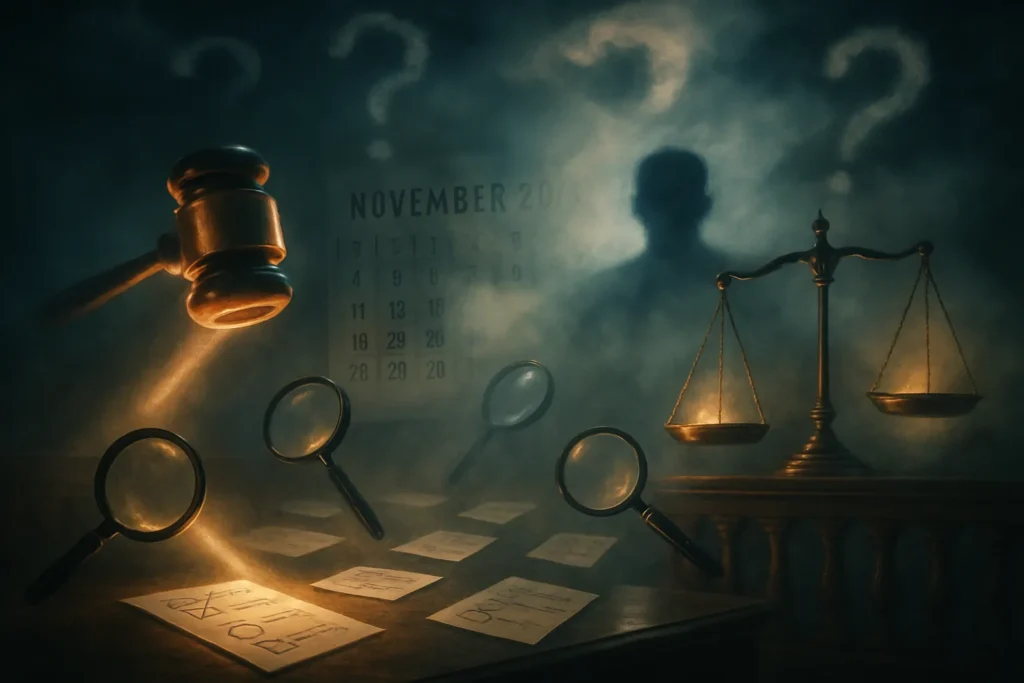Renewed Attempts to Investigate 2020 Election Claims
Former President Donald Trump has recently reiterated his demand for the appointment of a special prosecutor to investigate alleged electoral fraud during the 2020 presidential election, although comprehensive inquiries have consistently found no evidence to substantiate widespread fraud claims. Trump’s renewed call follows assertions by FBI Director Kash Patel, who claimed to have passed along “alarming” but largely unverified evidence to Republican Senator Chuck Grassley concerning alleged Chinese interference in the election. Despite these claims, the Department of Justice has not initiated charges based on Patel’s presented materials, suggesting the lack of substantial evidence supporting these allegations.
Trump’s insistence on appointing a special prosecutor underscores his continued denial of the 2020 results, which he claims he won decisively. The former president’s campaign and supporters filed numerous lawsuits immediately after Election Day, many of which judges dismissed as lacking merit, including those overseen by judges appointed by Trump himself. The Department of Homeland Security’s cybersecurity arm likewise described the election as “the most secure in American history.”
Trump’s renewed call mixes electoral claims with political attacks, especially targeting current President Joe Biden’s policy on border security. Trump highlighted statistics suggesting “zero border crossings” under his own administration compared to “60,000” under Biden’s, framing the current president as “grossly incompetent.”
“The claims being presented by Trump have been repeatedly analyzed and disproven. The call for a special prosecutor seems more aligned with political strategy rather than seeking any real judicial resolution,” said election analyst Philip Germain, reinforcing criticisms about the former president’s persistent electoral allegations.
Political Environment and Potential Responses
The possibility of appointing a special prosecutor primarily rests with Attorney General Pam Bondi, a noted Trump ally. Trump’s repeated demands align with broader political strategies as he surrounds himself with election-denying supporters, positioning his allegations at the center of his political messaging. The appointment of a special prosecutor, while unlikely to produce new evidence, could serve to legitimize his persistent claims among supporters and potentially rejuvenate legal battles around the contentious subject of electoral integrity.
However, legal experts and election officials have persistently reinforced that the 2020 election was conducted securely and transparently. According to comprehensive inquiries led by independent and bipartisan oversight, as well as federal and state election authorities, no credible evidence of systemic fraud has emerged.
Trump’s repeated demands have drawn widespread criticism from various quarters. Former Democratic Senate candidate Rick Taylor highlighted the absurdity of Trump’s repeated assertions, emphasizing the vast array of evidence negating the possibility of widespread fraud. Taylor, along with other observers, points out that Trump’s narrative about election fraud could undermine public confidence in electoral processes.
“Trump’s demands seem less about seeking justice and more about sowing doubt and division,” Taylor stated, echoing widespread concerns about potential long-term impacts on democratic norms and procedures.
Implications and Broader Electoral Context
Historically, the appointment of a special prosecutor to investigate electoral fraud has been incredibly rare and typically occurs only under circumstances supported by substantial preliminary evidence. In previous cases, the Department of Justice has exercised caution to avoid politically motivated investigations. Critics claim Trump’s calls for a special prosecutor appear more politically motivated rather than rooted in genuine concerns over electoral integrity.
Election experts have stressed that Trump’s persistent focus on alleged past electoral fraud distracts from critical contemporary issues, potentially eroding trust in the democratic process among a segment of voters. Even so, Trump’s allegations resonate with his base, maintaining their engagement and fueling their sense of grievance, a crucial factor in maintaining political mobilization.
Statistically, surveys continue to indicate a significant partisan divide regarding perceptions of electoral legitimacy. According to recent polling data, approximately 70% of Republicans remain skeptical about the fairness of the 2020 election results, underscoring the ongoing influence of Trump’s assertions within certain demographics.
Moreover, Trump’s promises go beyond the 2020 election claims. He previously vowed in 2023 to appoint a “real special prosecutor” to investigate what he describes as corruption involving President Biden and his administration’s handling of issues ranging from elections to border policies. Such rhetoric signals potential actions Trump might prioritize should he return to office, and highlights an ongoing willingness to leverage investigatory powers for political purposes.
“Revisiting the 2020 election through a special prosecutor, without substantive new evidence, might set a concerning precedent,” warned political scientist Dr. Lawrence J. Smith. “The implication of frequent, politically charged investigations could severely undermine institutional independence and public trust.”
Trump’s repeated calls have notably not elicited official comment from the current Justice Department, reflecting a careful institutional distance from politically charged allegations. However, the ongoing prominence of these claims within Trump’s messaging is likely to remain a significant feature of American political discourse, at least in the foreseeable future.


